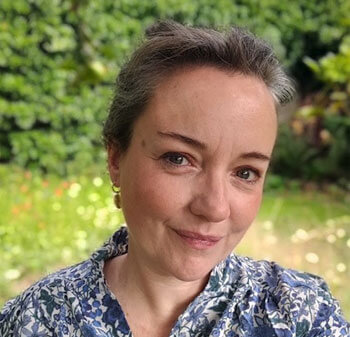Royal College of Art appoints Dr Samantha Moore as Head of Programme for Animation
Dr Samantha Moore has been appointed as Head of Programme for MA Animation within the School of Communication at the Royal College of Art (RCA). The programme cultivates critical thinking to examine social and cultural issues by embracing experimentation and creativity, and is renowned for its artistic excellence, director-led approach and innovative risk-taking.

Samantha Moore (Image via RCA)
Dr Paul Thompson, Vice-Chancellor, Royal College of Art, commented:
I’m delighted toannounce that Dr Samantha Moore will be Head of Programme on the Royal College of Art’s world-leading Animation MA programme. Dr Moore has made a significant contribution to the Collegesince joining as Senior Tutor (Research) in 2021 and her expertise, research focus and cross-disciplinary collaborative practice will be an asset to our students in both the School of Communication and the RCA as a whole.
Dr Samantha Moore said of her new role at the RCA:
I am delighted to lead RCA Animation, after having worked as Senior Tutor on the programme with Professor Suzanne Buchan for two years. I look forward to consolidating development in this vibrant and exciting form, where the only constantis interdisciplinary curiosity, and the wide-ranging nature and impact of the animated outcome.
Animation may provide singular perspectives but it is essentially collaborative. Together with an amazing team of internationally recognised and artistically engaged staff – tutors, technicians and guest speakers – I want to create an inclusive and diverse educational space where students can transform their research-led studio-based practice.
Formerly Senior Tutor (Research) in Animation at the Royal College of Art since 2021, Samantha is an animator and researcher with an interest in documentary, science, and practice as research.
Samantha’s research and practice use animation to document the invisible, particularly in scientific arenas. Samantha’s PhD explored how animation can document perceptual brain states, with a collaboratively ethnographic methodology.
Cross-disciplinary collaborative practice is vital to her work, and she has worked with a diverse cohort of peers including micro-biologists, neuro-psychologists, multiple birth medical professionals, textile artisans, and archaeologists. Samantha is passionate about the correlation between practice and research in animation with an interest in all aspects of expanded animation, from cinema-based features and independent short films, through music videos, to interstitials, installation work, VR/AR, games, medical imaging and data visualisation. Samantha directed the short animated documentary Visible Mending about emotional repair through wool, which has been longlisted for the British Short Animation award for the 2024 EE BAFTA Film Awards.
In addition to her role at the RCA, she is an Associate Professor in Animation at University College Volda, Norway, and co-editor of Animation Practice, Process & Production, Intellect Press Journal, with Dr Miriam Harris (Auckland University of Technology).
Commenting on Samantha’s appointment as Head of Programme for MA Animation, Professor Naren Barfield, Deputy Vice-Chancellor, said:
I’m delighted to see Samantha take up the leadership role in our esteemed Animation programme as we continue to broaden its appeal andrange, particularly with flexible delivery, and partnerships with industry. Since 2021, she has made an important contribution to the School of Communication and her commitment, expertise and collaborative approach will continue to be an asset to both the Animation programme and the RCA more widely.
Kerry Curtis, Dean of School of Communication said:
Sam is an important member of the team in our School and I’m very pleased that she’ll be taking up the Head of Programme role in Animation aswe continue to deliver this world-leading MA programme. I look forward to working with Sam in her new leadership role to support our students’ learning and continue to be responsive to emergent developments in the field.

